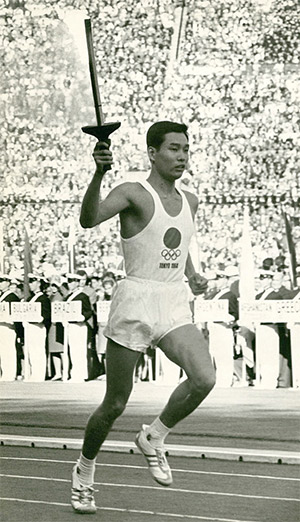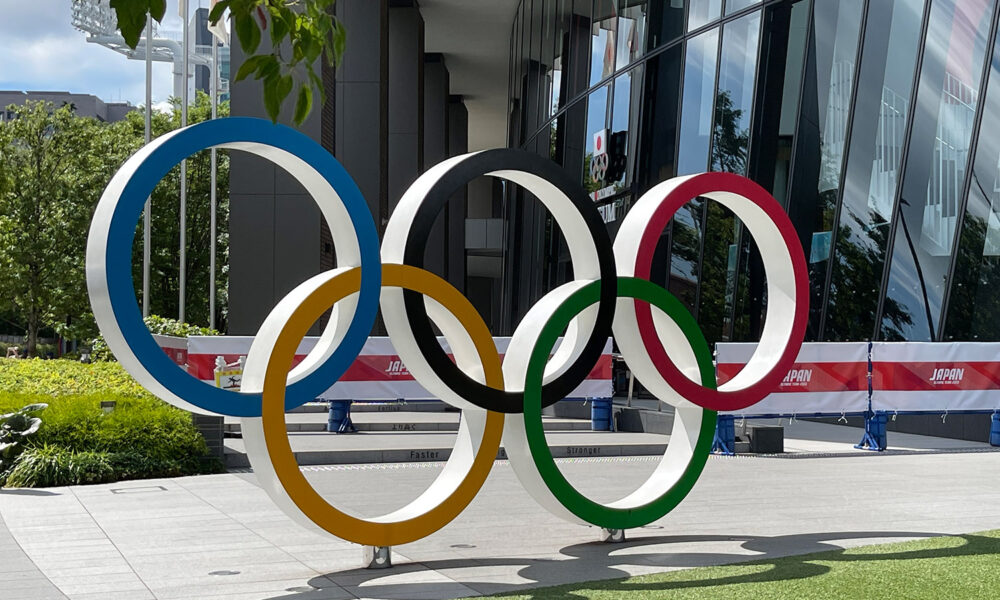When the Tokyo Olympics kick off on July 23, the Biden administration will be reviewing US nuclear weapons policy and Japan will play a role. President Biden says he supports declaring the United States would never start a nuclear war. So did President Obama. But concerns about Japan held him back.
Obama’s advisers warned him that if he made it clear the United States would never use nuclear weapons first Japan could withdraw from the Treaty on the Non-Proliferation of Nuclear Weapons (NPT) and build its own arsenal. A new analysis from UCS demonstrates that advice was mistaken. As Tokyo gets ready to host its first Olympic games since 1964, Biden should look more carefully at what is happening in Japan instead of accepting the errant conventional wisdom that undermined his predecessor.

Back in 1964, it seemed everyone in Japan was enthusiastic about hosting the games. It was a chance to show the world the country had changed; that it had recovered from the devastation of the Pacific War and repudiated the militarism that caused it. The games began when 19-year-old Sakai Yoshinori, who was born 60 kilometers from Hiroshima on the day of the atomic bombing, ran the final leg of the torch relay and lit the cauldron in Tokyo’s Olympic Stadium. The New York Times described Sakai’s role in the opening ceremonies as “symbolic of the new Japan’s hopes for peace and progress.
Things are very different today. The economic dynamism of early post war Japan disappeared decades ago. A corrupt and sclerotic government, dominated by a single party that has ruled Japan for 61 of the last 66 years, hoped the 2020 Olympics might pull the economy out of the doldrums. But it mishandled the pandemic, Tokyo is under a state of emergency and the stands of the Olympic Stadium will be empty during the games. Half of the country thinks the Olympics should have been canceled. Prime Minister Suga’s approval rating has sunk to 33%, an all-time low.
Suga’s Liberal Democratic Party (LDP) is also mismanaging Japanese foreign policy. It is pushing to eliminate the pacifist clause in Japan’s constitution, arm Japan with intermediate-range missiles and allow Japan’s Self Defense Force to participate in military operations unrelated to the defense of Japan, including a US-China war over Taiwan. None of those initiatives are supported by a majority of the Japanese people.
A few LDP officials, like the newly-appointed national security advisor Akiba Takeo, are reported to favor building storage facilities for US nuclear weapons in a controversial new US military base on the Japanese island of Okinawa. They also appear to be lobbying the Biden administration to fund a new nuclear-capable submarine launched cruise missile and to deploy it on US attack submarines that visit Japanese ports. Both of these developments would violate Japan’s non-nuclear principles, which forbid allowing US nuclear weapons into Japan.
These principles enjoy broad public support. Recent polling indicates three-quarters of the Japanese public wants their government to join the Treaty on the Prohibition of Nuclear Weapons (TPNW), which would prohibit Japan from relying on US nuclear weapons for its defense. Moreover, many Japanese experts question the LDP’s push to change the constitution, build expensive new missiles, and broaden the mission of the Self-Defense Force.
Most Japanese would like to return to the direction of early post-war Japan and revive the spirit of Sakai Yoshinori’s run to light the Olympic flame. They would prefer their government focus on eliminating the insecurities created by economic failure, climate change and future pandemics. They would rather see Japan promote diplomacy, cut military spending and abandon provocative new policies that could drag Japan into war.
Unfortunately, mainstream Japanese voices on security issues seldom get a hearing in the United States. The US conversation on Japan is dominated by a few conservative think tanks and a handful of US officials who support the counterproductive hardline policies promoted by Suga’s LDP. Broadening that conversation can help change how President Biden and the US Congress think about Japan’s security concerns and how to respond to them. That change of mind can create the political support President Biden needs to succeed, where President Obama did not, in changing US nuclear weapons policy for the better.
UCS is working with Japan’s New Diplomacy Initiative to bring mainstream Japanese views into the US discussion. As the Biden administration begins its review of US nuclear weapons policies, we are releasing two reports. The first, from UCS, focuses on the question of the United States adopting a “no-first-use” policy that makes it clear the United States will never start a nuclear war. The report corrects the mistaken information President Obama received on Japanese attitudes towards this much-needed change in US nuclear weapons policy: a change that will significantly reduce the possibility of a nuclear war in East Asia and create opportunities to stop a new nuclear arms race.
The second is a comprehensive report from Japanese experts on the future of their country’s defense and foreign policy. It argues Japan must go beyond overly narrow conceptions of deterrence and embrace a more realistic set of policies focused on peace and prosperity that, back in 1964, transformed Japan into one of the most stable, innovative, and productive nations in the world, and could do so again.
We invite you to join UCS and the authors of that report for a discussion about Japan and nuclear weapons on August 4th as the Tokyo Olympics closes and Japan prepares to commemorate the anniversary of the atomic bombing of Hiroshima. We can’t broaden the conversation and change US policy without you, and hope you’ll help us at this critical time.

